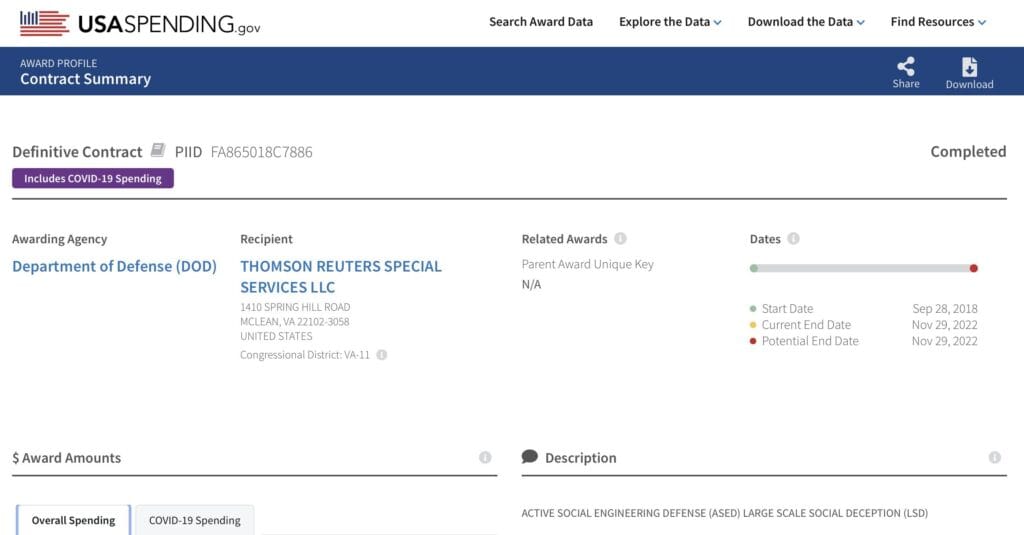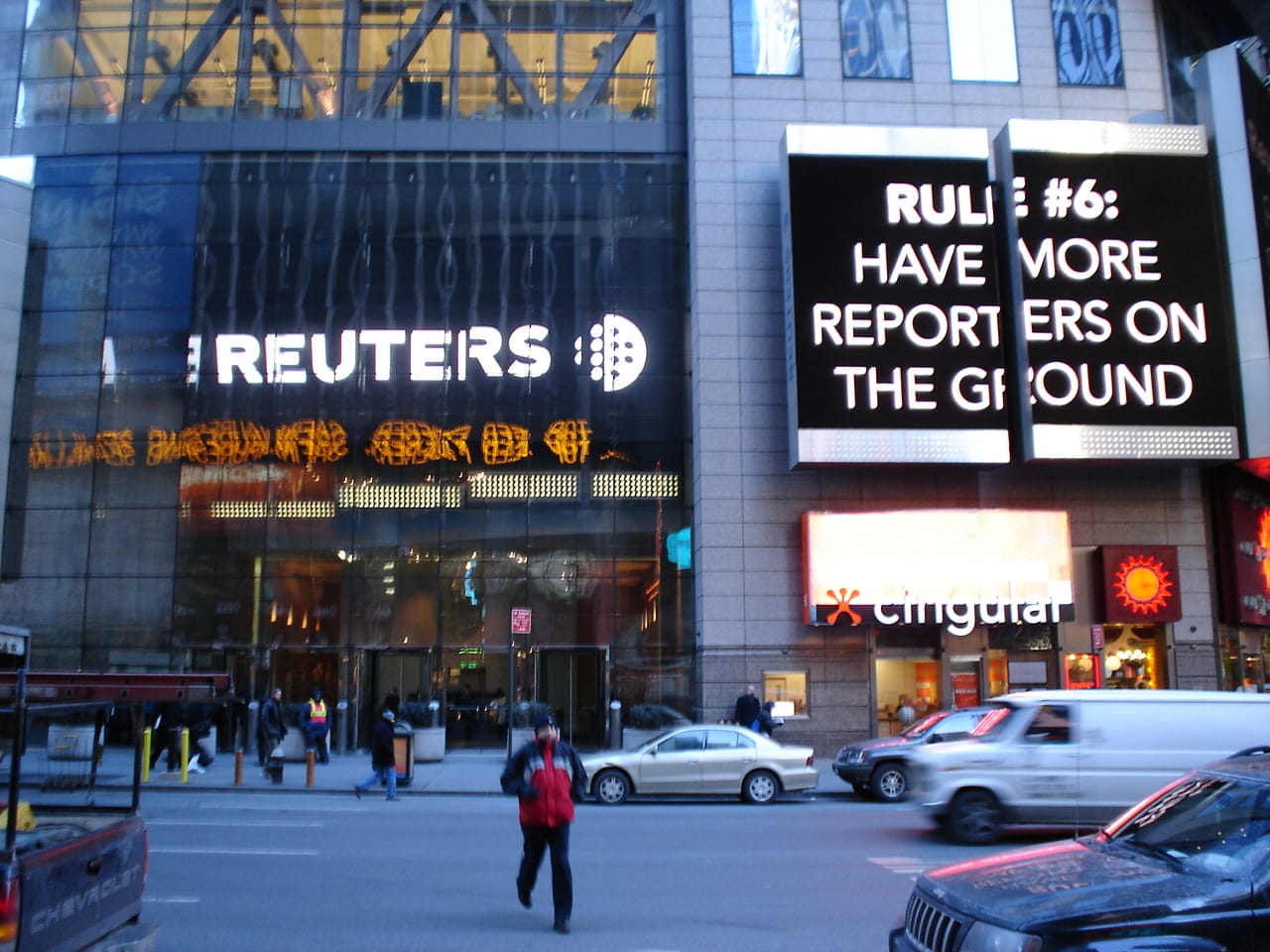In February 2025, Russian-language media and Telegram channels, citing billionaire Elon Musk, reported that one of the world’s most authoritative news agencies allegedly received $9 million from the US budget, and the purpose of the payments was stated to be “large-scale social deception.” We decided to check if this is true.
Musk's accusations against Reuters were reported "Russian newspaper", Russia Today, Lenta.ru, "Komsomolskaya Pravda", "Arguments and facts", "News", "Gazeta.ru"and other Russian media. The resonant news was widely covered on Telegram, where it was shared by the channels “Ax Live"(792,000 views at the time of writing this analysis), "Nevzorov" (568,000), "Ivan Utenkov | Kursk"(134,000), "Sheikh Tamir"(106,000), "Country politics"(103,000), etc. Funding of the Reuters agency from the American budget was also discussed by social network users ("VKontakte", X) And blogging platforms.
On February 13, 2025, American director Ron Howard published a link to note Reuters headlined “DOGE's government spending cuts so far based more on political ideology than actual savings.” “What do you think about this?” — Howard asked subscribers. An hour later this tweet commented Musk, head of DOGE and owner of X: “I wonder how much money Reuters gets from the government? Let's find out!
Soon, Musk’s response was reposted by entrepreneur and podcaster Mario Navfal, who added: DOGE's alleged investigations uncovered "mysterious Department of Defense payments to Reuters for a 'large-scale social deception' project between 2018 and 2022." Musk reposted this post with the comment: "The US government paid Reuters millions of dollars for 'massive social deception'." That's literally what it says on the purchase order! This is a complete deception. Just wow." A screenshot of this particular tweet, which received almost 42 million views, was published by most of the media and Internet users discussing the news.
A screenshot from the website usaspending.gov, where information about American government procurement is published, was attached to Navfal’s post. Judging by this screenshot, the US Department of Defense in 2018 entered into a four-year contract with Thomson Reuters Special Services LLC. The purpose of the payment states: “Active social engineering defense (ASED) Large scale social deception (LSD),” which can be translated as “Active protection against social engineering. Large-scale social deception." USAspending.gov actually has this one. contract, on its page it is indicated that the Ministry of Defense transferred a little more than $9 million to the contractor over four years. So the screenshot is real, but the comments on it are misleading.

Mentioned in the purpose of payment ASED is a Defense Advanced Research Projects Agency program dedicated to protecting against social engineering cyberattacks. Such attacks do not use technological hacking methods; instead, attackers trick the victim into performing certain actions, such as providing access to sensitive information or providing passwords for logging into accounts. The same method is used by scammers who convince people over the phone to give them their bank card details. Only if employees of the Ministry of Defense are subjected to such an attack, the consequences could be much more dangerous, so the department’s desire to protect itself from this seems logical. The ultimate goal of the ASED program was to develop technology that would automatically detect, interrupt, and investigate social engineering attacks.
But how can the media help with this? The point is that Thomson Reuters Special Services LLC (TRSS), indicated as the recipient of the payment, is not a legal entity of the Reuters news agency, but an information and analytical company that also deals with cybersecurity issues. She does not hide her cooperation with the Ministry of Defense; on the contrary, a separate article is devoted to this page on the TRSS website - it says that the company’s specialists identify vulnerabilities in Pentagon teams, programs and missions. Although TRSS is part of a group of companies Thomson Reuters, like the Reuters news agency, as well as several other companies operating in various industries (from law to trade), there is no reason to believe that the funds transferred by the Pentagon were fully or partially used to finance the media.
Tabatha Thompson, a spokeswoman for the Defense Advanced Research Projects Agency, which paid for the contract, stated: “TRSS was competitively selected as the evaluator to test the effectiveness of the security tools.” Company CEO Steve Rubley explained, “TRSS has provided software and information services to U.S. government agencies across every administration for decades, helping to detect and prevent fraud, support public safety, and advance justice.”
As for the second part of the payment purpose, which Musk was so interested in, “large-scale social deception” (or LSD), judging by comment Representative of the US Department of Defense Chelsea Ditlin, is the name of the “red team” of TRSS specialists. by the red team (or red team - usually this IT term, like many others, is not translated) refers to information security specialists who simulate hacker attacks in order to identify security vulnerabilities and assess the possible consequences of a real hack. During testing they are opposed by the blue team.
Although Musk and his associates hint or even directly state that the Reuters news agency received money from the US government to deceive and promote a leftist agenda, the contract itself was concluded during the first presidential term of Donald Trump (2017-2021). The politician himself did not ignore the news; however, he was more careful in his wording. On his page on the social network Truth Social, he stated: “The Department of Defense appears to have paid radical leftist Reuters $9 million to study “massive social deception.” GET YOUR MONEY BACK IMMEDIATELY!”
Thus, the US Department of Defense transferred more than $9 million not to the Reuters news agency, but to an information and analytical company that is part of the same holding. The agency paid not for a large-scale social deception of the audience, but for an audit of the Pentagon’s security systems in order to prevent cyber attacks using social engineering methods. This contract was concluded at the height of Trump’s first presidential term.
Cover photo: The original uploader was Eternalsleeper at English Wikipedia., CC BY-SA 3.0, via Wikimedia Commons
- LeadStories. Fact Check: U.S. Government Did NOT Pay Reuters For 'Large Scale Social Deception'
- Coursera. Red Team vs. Blue Team in Cybersecurity
- Stars for Ukraine, condoms for Hamas, grants for the media. Analysis of five statements about USAID
If you find a spelling or grammatical error, please let us know by highlighting the error text and clicking Ctrl+Enter.






